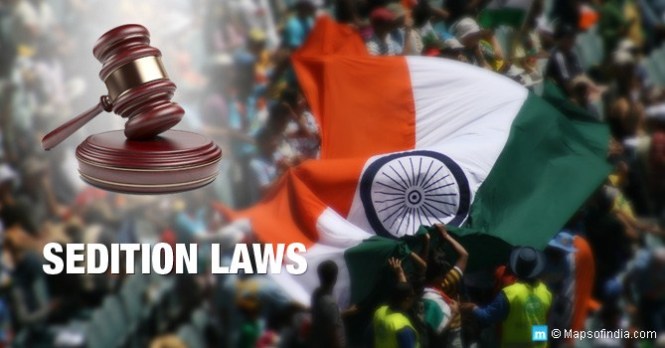Section 124-A of the IPC which criminalizes sedition has brought wrath to the current Modi government and the previous governments since the time of independence. Unlikely elements have demanded scrapping the law time and again, with Congress giving in and promising to repeal the act in their manifesto ahead of the Lok Sabha 2019 elections. However, the ruling Modi government, undeterred, has time and again said that they would make the sedition law stronger so that its provisions would “send shivers down the spine”. This is exactly what was reinforced in the parliament on Wednesday when the Modi government clarified its stand on the sedition law and said there was no proposal to scrap the provision.
During the question hour on Wednesday, the Minister of State for Home Affairs Nityanand Rai, in a written reply to Rajya Sabha stated, “There is no proposal to scrap the provision under the IPC dealing with the offence of sedition. There is a need to retain the provision to effectively combat anti-national, secessionist and terrorist elements.” Ahead of the Lok Sabha election, Defence Minister Rajnath Singh had said that the Modi government would work towards strengthening sedition law if the government was voted back to power.
Section 124A of the IPC reads, “Whoever, by words, either spoken or written, or by signs, or by visible representation, or otherwise, brings or attempts to bring into hatred or contempt, or excites or attempts to excite disaffection towards the Government established by law shall be punished with imprisonment for life, to which fine may be added”.
This effectively criminalizes activities which are anti-national. The law on sedition was originally drafted by Lord Thomas Babington Macaulay and became a part of the IPC in the year 1890. Although the British era law has seen several controversies, the necessity of the law cannot be ruled out. India is a unified country with several diverse elements. Due to this, plenty of times in the recent past, the country has witnessed several elements which have called out for hatred and contempt for the Indian Union, the separatists in Kashmir being the most prominent such element.
A couple of years ago in 2016, the incident in Jawaharlal Nehru University (JNU) in the capital had rocked the country from its core when university students were seen openly chanting slogans against the Indian state. This was done to mark the death anniversary of 2001 Parliament attack mastermind Afzal Guru. Some of the slogans included, ‘Kitne Afzal maaroge, ghar ghar se Afzal niklenge’, ‘Pakistan Zindabad’, ‘India Tere Tukde Tukde Honge’, ‘India Go Back’, among others.
These extremely distasteful slogans were not only endorsing terrorism but were also calling for break-up of the Indian Union. In light of this, the Delhi police had filed a 1200-page chargesheet naming Kanhaiya Kumar, Umar Khalid, Anirban Bhattacharya and several others for shouting anti-India slogans and slapped various charges, including that of sedition, against them.
Calling for breaking the nation into pieces isn’t strictly violence and does not fall under the IPC sections prohibiting wagering of war or conspiring against the Indian government. However, such slogans are aimed at encouraging the citizens of the country, who may on a future event; indulge in violent acts against the government. In such cases, it is imperative to stop the chain of acts from the root itself. Indian government gives wide prerogative to free speech and expression, and such liberty needs to be judiciously exercised. Such calls and speeches which instigate and corrupts the minds of thousands at large are in a way worse than the episodic violence as such acts give rise to thousands more who may partake in violent acts in the future. The sedition law works as a deterrent to such acts and as such must be retained.



























